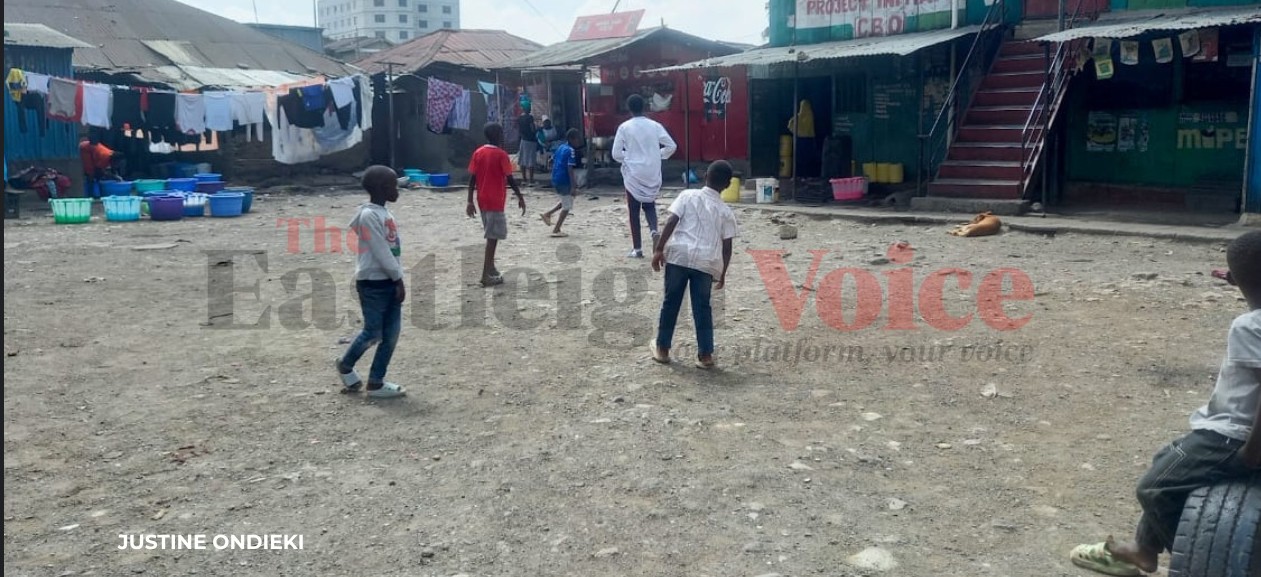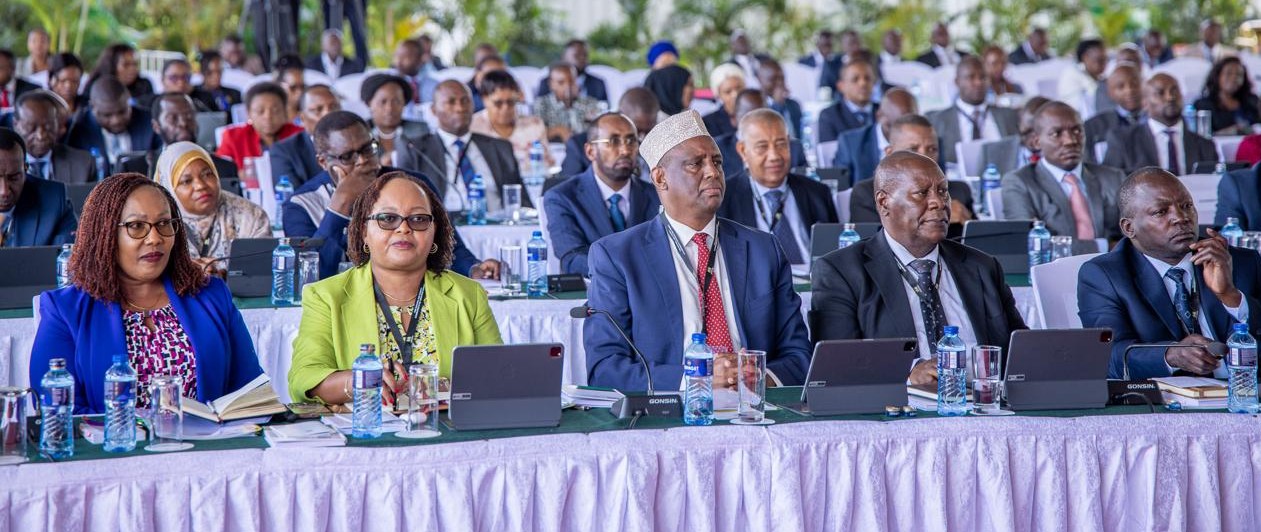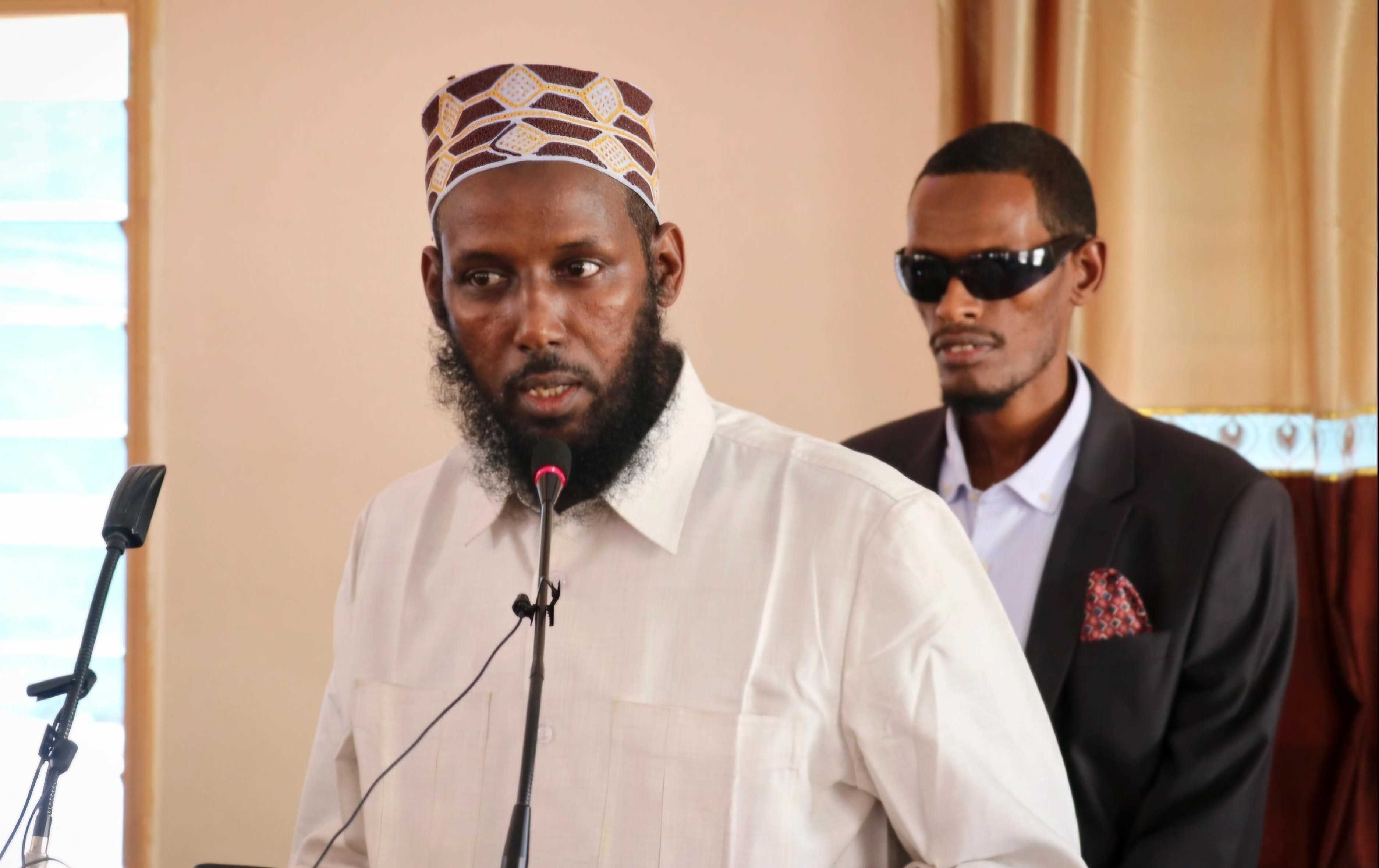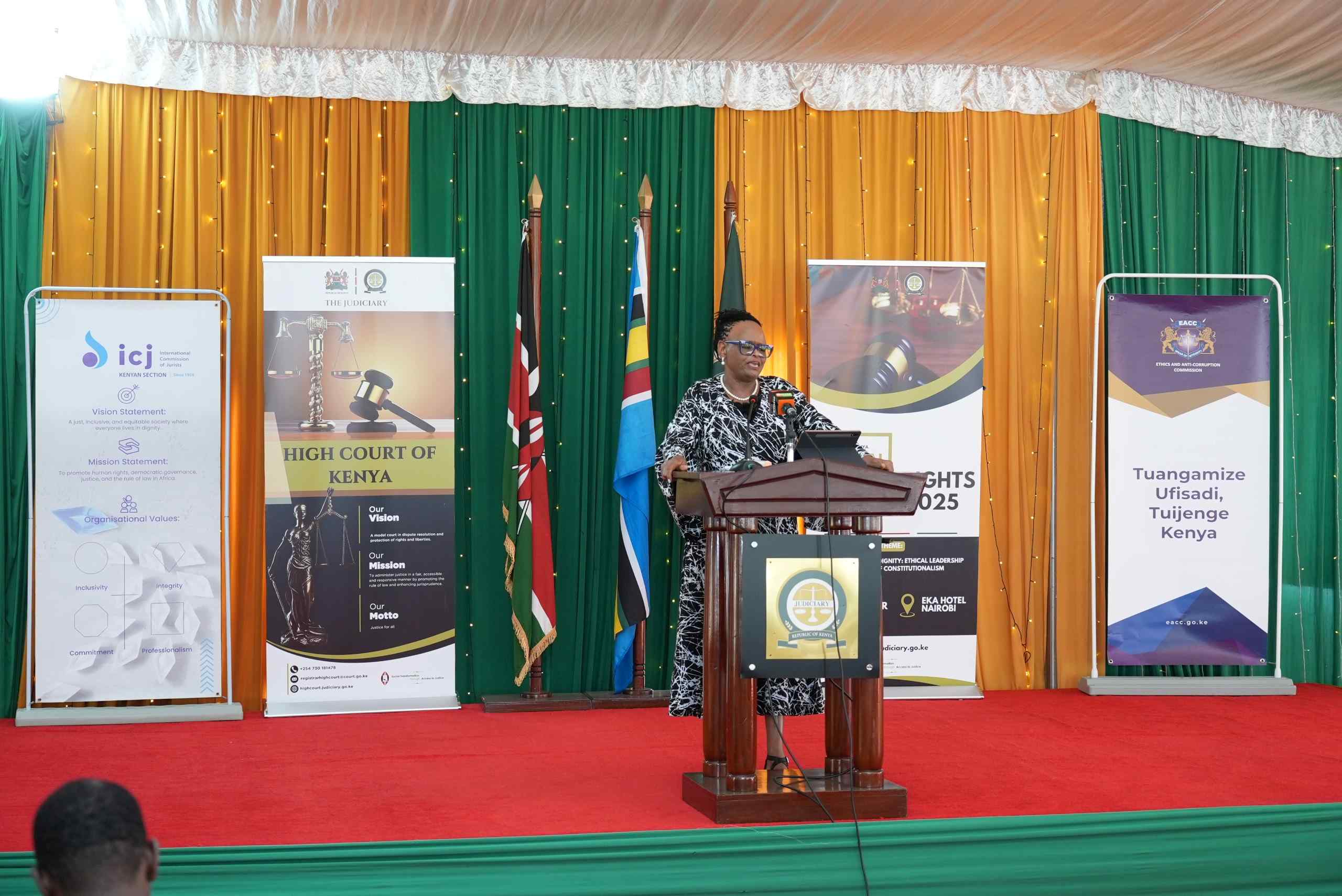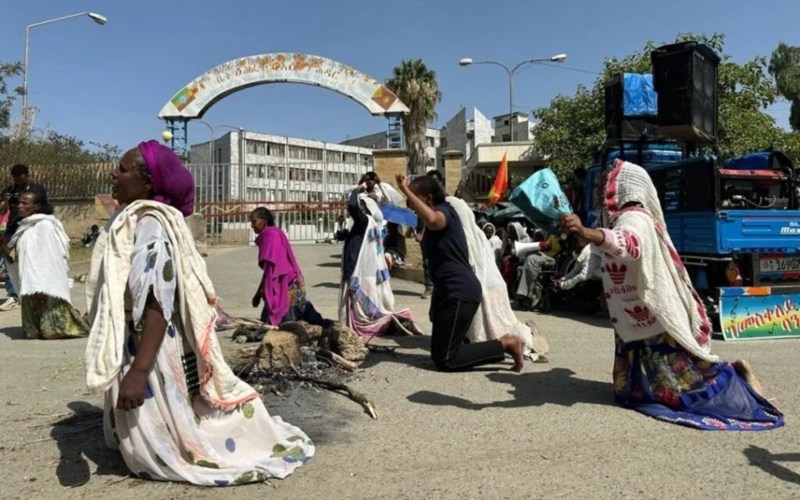Wajir’s marginalised communities demand fair representation and end to clan politics
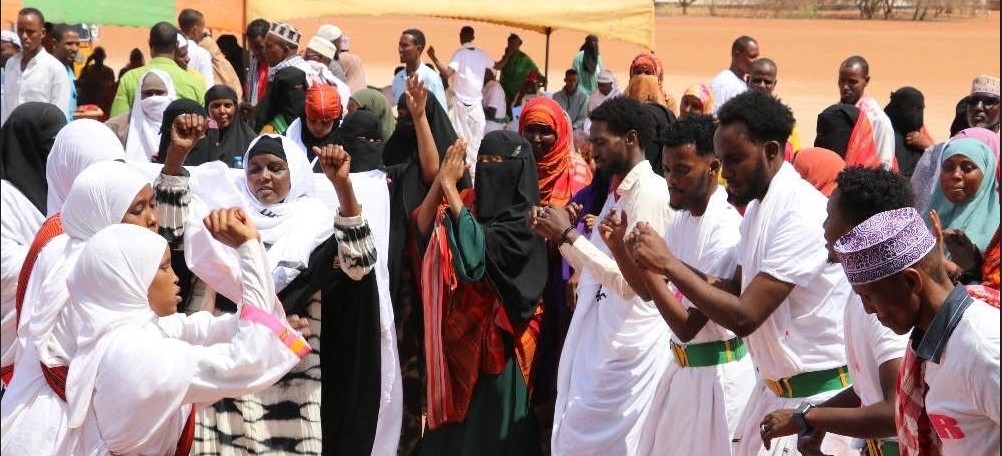
In a rare show of unity and defiance, representatives from the Asharaf, Harti, Arabs, Barawa, Leysan, Shikhaal, and other minority groups convened in Wajir town on Wednesday, demanding a seat at the decision-making table and an end to what they described as “historical exclusion.”
Indigenous minority communities in Wajir County have made a bold call for inclusion, equity, and representation, decrying decades of systemic marginalisation that have left them excluded from governance, development, and access to public resources.
In a rare show of unity and defiance, representatives from the Asharaf, Harti, Arabs, Barawa, Leysan, Shikhaal, and other minority groups convened in Wajir town on Wednesday, demanding a seat at the decision-making table and an end to what they described as “historical exclusion.”
More To Read
- Wajir MCAs demand answers over rising abductions after two men vanish
- Wajir police nab suspect with AK-47 rifle in ongoing crackdown on illegal firearms
- New 1MW generator boosts Wajir’s power supply, promises relief from frequent blackouts
- Stakeholders warn of increased FGM cases in Wajir during long school holiday
- KDF engages Wajir leaders to bolster security along Kenya-Somalia border
- Wajir Governor Ahmed Abdullahi signs Sh14 billion budget after months of legal disputes
“We are Kenyan citizens like everyone else. We pay taxes, we vote — but when it comes to jobs, education, and leadership, we are invisible,” said Shariff Hassan, an Asharaf community representative.
The meeting, attended by Moses Ole Kachike, Deputy Director for Advisory and Community Liaison in the Office of the President’s Minorities and Marginalised Unit, cast a national spotlight on the communities’ grievances.
Speakers highlighted long-standing issues, including a lack of political representation, exclusion from both county and national employment, limited access to scholarships and bursaries, and exclusion from key resource allocation processes.
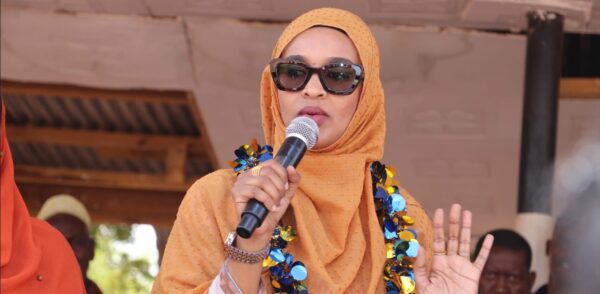 Culture, Arts and Heritage PS Ummi Bashir addressing the minority communities in Wajir during the event held on October 6, 2025. (Photo: Issa Hussein)
Culture, Arts and Heritage PS Ummi Bashir addressing the minority communities in Wajir during the event held on October 6, 2025. (Photo: Issa Hussein)
Lumped as ‘others’
“The Asharaf community is not even recognised in official census data. We are always lumped as ‘others’ — a word that denies our identity,” said one Asharaf elder.
“Without official recognition, we are excluded from opportunities meant to uplift Kenyan citizens. This is not just oversight — it is erasure.”
Other groups echoed similar frustrations. Mohamed Noor of the Barawa community — known for its rich cultural heritage and significant contributions to Wajir’s economy — warned that the ongoing exclusion of smaller communities threatens to widen inequality and undermine social cohesion.
“We have played a key role in Wajir’s trade and social development, yet we remain excluded. We want equal access to education, to contracts, to job opportunities,” he said.
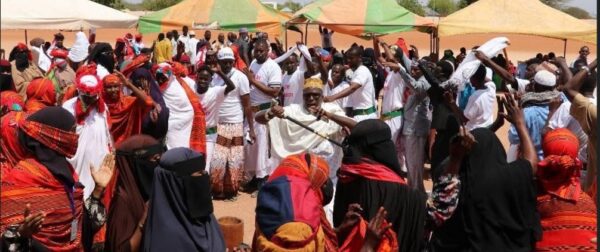 The minority communities in Wajir showcased growing unity and self-assertion, blending cultural pride with rising political awareness. (Photo: Issa Hussein)
The minority communities in Wajir showcased growing unity and self-assertion, blending cultural pride with rising political awareness. (Photo: Issa Hussein)
Badar Ahmed, speaking for the Arab community — one of Wajir’s oldest indigenous groups — pointed to entrenched clan-based politics as a major barrier to inclusion.
“Despite our deep roots here, access to public employment and leadership remains limited. Nepotism and clan politics have locked out our youth, no matter how qualified they are,” said Ahmed.
“When we ensure every community, large or small, has a seat at the table, we uphold the values of our Constitution and our faith — that all people are equal in dignity and rights.”
Speakers urged both county and national governments to enact deliberate policy reforms that recognise and protect minority rights as enshrined in the Constitution.
They called for official recognition in national statistics, equitable political representation, fair access to jobs, education, and business opportunities, and inclusion in county decision-making structures.
“This is not just about our communities — it’s about justice. No county can progress when it leaves part of its population behind,” said one representative.
Earlier in the week, minority communities held a colourful cultural celebration where they showcased traditional dances, songs, and artefacts in a show of unity and resilience.
The event, attended by hundreds of residents, was graced by the Principal Secretary for Culture, Arts and Heritage, Ummi Bashir.
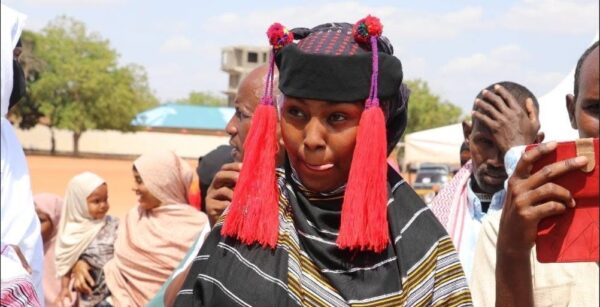 The minority communities showcased traditional dances, songs, and artefacts in a show of unity and resilience. (Photo: Issa Hussein)
The minority communities showcased traditional dances, songs, and artefacts in a show of unity and resilience. (Photo: Issa Hussein)
“I have heard your voices, and I will deliver your message of inclusion to both the county and national leadership,” PS Bashir assured the crowd.
“You must also take full advantage of the government’s programmes for youth, women, and marginalised groups.”
The week’s events marked a growing wave of self-assertion among Wajir’s minority communities — blending cultural pride with political awareness.
As the meeting concluded, participants issued a joint declaration that Wajir belongs to all its people, vowing to continue demanding recognition, representation, and equal rights.
“Our series of events was not just about grievances,” said attendee Ali Abdinoor. “It was a declaration: We are here, and we will no longer be ignored.”
Top Stories Today

